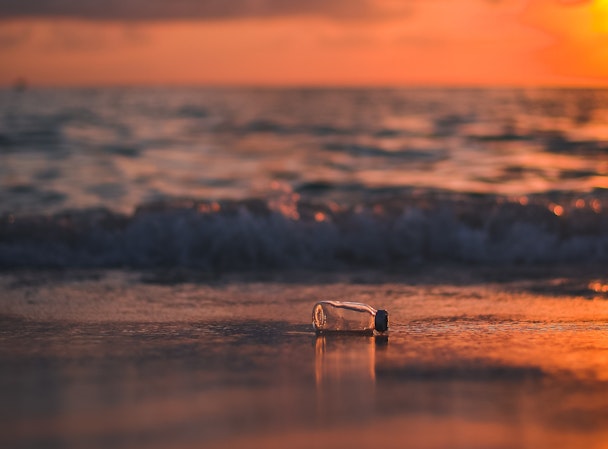What brands should know from the war waged on plastics
When Hugh Fearnley-Whittingstall’s War on Plastic documentary opened with the fact that every minute of every day the equivalent of a garbage truck full of plastic is emptied into the world’s oceans, it was clear that it was time for brands and consumers to listen up.

Stir PR consider how brands can do more to eliminate plastic waste.
With 2.2 million tonnes of plastic packaging produced every year, the challenge was on for businesses to do more to reduce the amount of plastic they use. As consumers' awareness of the environment grows, their purchasing habits shift, with many boycotting brands not doing their part for the environment and instead sticking to brands that are evoking an emotional response and making a difference.
Eight months on from the documentary, we thought we’d take a look at the changes we’ve seen in the industry to look at which sectors are faring best.
Supermarket’s sweep out the plastic
One of the first channels to be targeted in the documentary was the supermarket industry. Research found that over a third of all the plastic packaging in the country comes from the ten leading supermarket chains (more than 800,000 tonnes a year) and food without the unnecessary packaging was priced higher in-store.
Cue a scramble of stores making pledges to go zero waste and reduce their plastic packaging. Sainsbury’s, Aldi and Morrisons among others, made commitments to decrease their plastic use and make more packaging recyclable, as well as encouraging customers to bring in their own containers for over-the-counter fish and meat. Plastic-free aisles have also been introduced, with stores like Sainsbury’s removing plastic bags for their loose fruit and veg and Lidl launching recycled packaging made from ‘ocean bound plastic’.
Battling bottles
Plastic bottles are the most commonly found litter on UK beaches, and the fact they take 450 years to decompose, means they’re a problem that’s here to stay. While this sector arguably has the biggest challenge ahead, steps have already been taken to rectify this.
Here the solution focuses on recycling, as opposed to changing formats completely – although some brands have started to shift towards aluminium cans. Brands such as Buxton have pledged to launch 100% recycled plastic bottles in a move to reduce production of new plastic and create a circular economy, whilst Coca-Cola launched its ‘Round in circles’ campaign to educate consumers on the benefits of recycling plastic. It’s not just drinks brands getting in on the action too, with companies such as Boots announcing plans to recycle 86,000 plastic bottles a year into its own brand, eco-friendly tights.
The brand initiatives outlined above have demonstrated they are willing to make a change and have educated consumers about the benefits of purchasing recycled plastic over single-use in the hopes of maintaining purchasing habits for the years to come.
Changing formats
The ‘Food to Go’ industry causes 11 billion items of packaging waste a year, much of which can’t be recycled. Brands are however increasingly making changes, with many having turned to sustainable packaging options. Drinks brands are swapping out old-style plastic ring holders for cardboard variations, such as Heineken UK, while tea brands such as Numi Tea and Clipper Teas have removed plastic from their teabags and produced alternative options.
Toy takedown
Another target in the War on Plastic documentary was the fast-food industry. With McDonald's the largest toy distributor in the world, the brand hands out over 1.4 billion single-use plastic toys per year worldwide. The end of last year saw the sector take note however, with both McDonald’s and Burger King removing plastic toys from their outlets. Furthermore, both brands also put a PR spin on the initiative, by encouraging consumers to bring in their old plastic toys to be melt down and recycled appropriately, with Burger King creating new play areas out of the recycled plastics and McDonalds putting it towards useful items such as coffee cups.
Documentaries like War on Plastic, as well as any of Attenborough’s series, have made consumers increasingly aware of the impact their buying habits may have on the planet, and as such, have made them more willing to make sustainable purchases and waste less. It has also made clear that consumers, while happy to share the environmental responsibilities, look to the brands they love to do their bit too - and if they don’t believe this is happening, will have no trouble switching their loyalty to those who do.
There is a real positive opportunity for brands to demonstrate how they are working to change their approach to plastic. It doesn’t have to be a complete rewrite, but a packaging refresh or a selfless recycling initiative can make all the difference when it comes to consumer perceptions. One key watch out however is to ensure that these efforts are authentic and backed by the wider business, not just contrived, as consumers are savvy and will instantly sniff out a self-fulfilling opportunity over a selfless deed. If authentic, a brand’s desire for change can be turned into positive PR news story, just like Burger King with its melt down, but promises must be kept post-campaign.
Get in touch if you’d like to find out more about how your initiative and desire for change can be sent out into the PR sphere.
Adam Cooksey, senior account manager at Stir PR.
Content by The Drum Network member:

Stir PR
Stir is made up of creatives, strategic thinkers and doers, publicists, writers and event organisers. We are united in our desire to be ambitious for our clients...
Find out more
